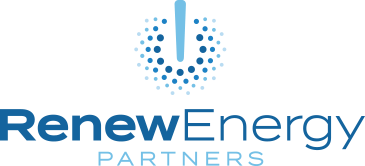Strategies to Fund Decarbonization Roadmaps

This article explores methods to fund and implement net zero roadmaps while considering both environmental objectives and financial limitations. By understanding these strategies, stakeholders can effectively drive the transition to a low-carbon economy.
What is the status of the decarbonization roadmaps in today’s landscape?
More than a third of the world’s largest 2,000 publicly listed companies have established net zero goals to some extent according to the Net Zero Tracker. Sixty-five percent of these companies, however, are not meeting the minimum reporting standards that are currently in place.
Additionally, just over 1% of these companies have a thorough decarbonization plan in place to achieve their net zero goals. The existing disparity between objectives and implementation poses a significant threat to achieving a sustainable future.
Before exploring funding options for your decarbonization plans, we recommend reviewing our comprehensive guide on achieving decarbonization targets. This manual provides a comprehensive approach for reducing carbon emissions in your company’s buildings.
Defining Decarbonization Targets
To succeed in a decarbonized future, companies must carefully assess their current position and define their desired outcomes. By recognizing the gap between these two, organizations can develop strategies that align with their goals and accommodate various scenarios.
Implementing these roadmaps enhances competitiveness and sustainability. In contrast to short-term factors, roadmaps focus on long-term advantages. It is important to recognize that there is no one-size-fits-all approach for every company. To thrive in a rapidly changing landscape for decarbonization, organizations must adopt comprehensive strategies tailored to their specific objectives and requirements.
RENEW Energy Partners works closely with companies at any stage of their decarbonization process. If your company requires an energy audit, RENEW can provide a thorough evaluation of your energy needs without any risk or cost to you.
Effective Collaboration Drives Successful Implementation of Decarbonization Roadmaps
To achieve a successful implementation of decarbonization roadmap, close collaboration among key teams is imperative. The following three teams must work in concert:
- Executive Leadership Team: A company’s leadership team is focused on strategic direction and managing what can be competing priorities. The leadership team leads and sets the tone for the organization’s commitment to sustainability.
- Sustainability and ESG Team: This team shoulders the responsibility of formulating, managing, and executing the decarbonization roadmap. Collaboration with various departments, including operations, finance, and supply chain, is fundamental to effectively implementing sustainable practices.
- Finance Team: We know the CFO and colleagues manage budget allocation and a limited capital budget. The finance team assesses the feasibility of decarbonization projects, as well as funding options.
Renew’s approach fosters collaboration between these three teams to synchronize the company’s financial resources, strategic vision, and sustainability objectives. Implementing a decarbonization strategy in an organization is difficult without committed leaders, a skilled sustainability team, and a knowledgeable finance team.
Exploring funding options for decarbonization initiatives
Decarbonization funding demands a well-thought-out strategy harmonizing environmental objectives with available financial resources. The approach to securing funds can vary based on the specific nature of the project in need of financing.
Consider building retrofit ventures that often require substantial investments reaching into the millions of dollars. Fortunately, a variety of funding avenues exist for such initiatives, widely embraced across industries. These include Energy Service Agreements (ESA), Energy Performance Contracting (EPC), and Commercial Property Assessed Clean Energy (CPACE).
Understanding different financial mechanisms and identifying decarbonization technologies needing funding is crucial for decision-makers, policymakers, and businesses. In the following sections, we will explore how to effectively fund the journey to the Net Zero future.
Internal Reallocation of Resources
Begin by examining your organization’s existing budget and operational expenses. Identify areas where we can reallocate funds to support decarbonization efforts. This could mean using money from less important projects, departments with extra funds, or cutting unnecessary expenses without affecting important tasks.
Green Bonds and Sustainability-Linked Financing
Green bonds are fixed-income financial instruments specifically designed to fund environmentally friendly projects. They enable organizations to raise capital from investors interested in supporting sustainable initiatives. Sustainability-linked financing, on the other hand, ties interest rates or terms to the achievement of sustainability goals, aligning financial incentives with environmental targets.
Government Grants and Subsidies
Many governments offer grants, subsidies, and incentives for projects that contribute to emissions reductions and sustainability. Research available options and apply for relevant funding programs that align with your decarbonization roadmap. These programs often vary by region and sector, so thorough research is key.
Utility Rebates
Many utility companies offer rebates for energy-efficiency upgrade projects. These rebates can be used to offset the cost of purchasing and installing energy-efficient systems, such as high-efficiency HVAC systems, lighting upgrades, and insulation improvements. These projects help reduce both energy consumption as well as carbon emissions.
Carbon Offsetting and Emission Reduction Credits
Participate in carbon offset programs or trading schemes where you can earn emission reduction credits for your sustainability efforts. These credits can be sold to other organizations seeking to offset their own carbon emissions, providing an additional revenue stream.
Funding decarbonization roadmaps requires a creative and multi-faceted approach. Organizations must explore a combination of strategies that align with their specific goals, resources, and market conditions.
Funding Net Zero Roadmaps with RENEW’s Master Service Agreement
Renew Energy Partner’s Master Service Agreement (MSA) is a fully funded service agreement for improving and decarbonizing the built environment.
The MSA is a comprehensive contract that covers the legal aspects of the agreement between RENEW and the customer. It also includes specific Project Addenda that allow for scalability in energy efficiency and sustainability initiatives. This contract is much more flexible and modular compared to traditional funding options, making it an ideal solution for decarbonization plans.
- The MSA might have an Energy Service Agreement (ESA) for energy-efficient upgrades such as lighting, HVAC, or smart energy controls. It could also have a Power Purchase Agreement (PPA) for on-site clean power like solar + storage or combined heat and power (CHP).
- It is a funding solution that enables owners to decarbonize their buildings today, without making an investment.
- Just like a utility expense, an MSA can achieve off-balance sheet treatment and be treated like any other operating expense, tax deductible. Please consult your tax advisor in order to determine if this is an aspect of the MSA that you can take advantage of.
- An MSA takes the financial and project implementation burden from the building owner. Building owners pay a monthly amount that is less than the total saved, so from day one there are savings applied to the bottom line.
Overall, the MSA provides a sustainable funding solution that streamlines decarbonization efforts while providing immediate cost savings for building owners. By treating the MSA as off-balance sheet, companies can decarbonize while simultaneously freeing up capital for non-energy related projects.
Conclusion
By understanding these funding strategies, building stakeholders can lower energy bills, avoid impending tariffs, improve their company’s image, and fund the transition to a Net Zero future. If you are looking to find the best way to fund decarbonization initiatives, consider contacting RENEW Energy Partners today.




